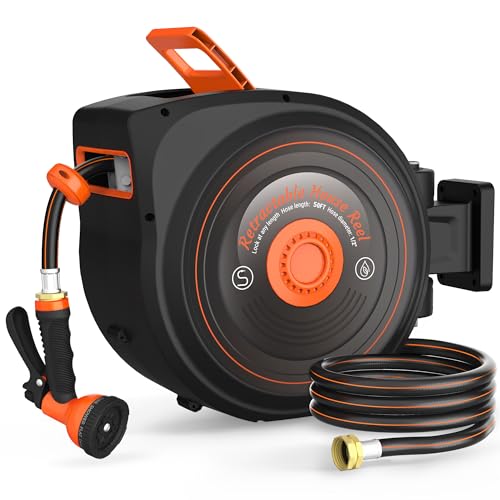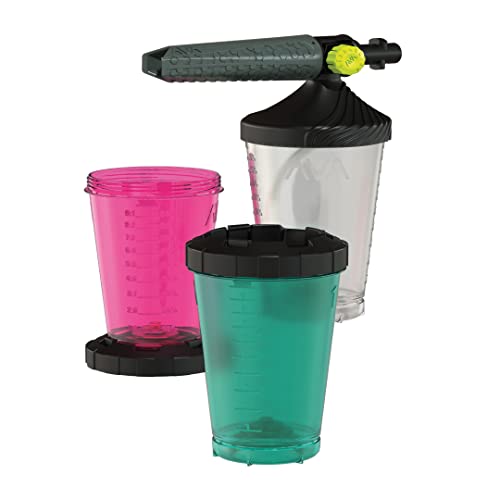
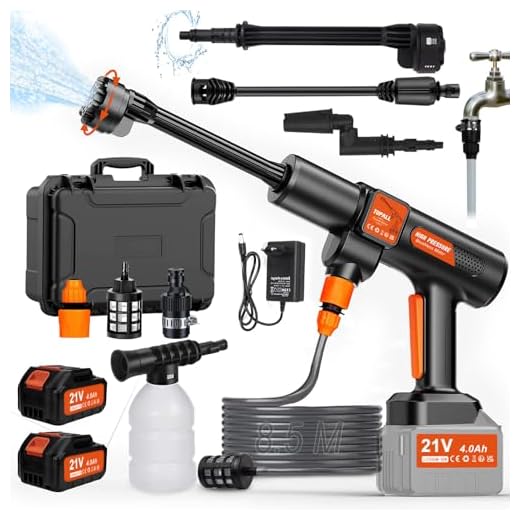


To achieve optimal cleaning results, it’s crucial to know your equipment well. If you’re focused on heavy-duty tasks, opt for a high-output cleaning machine that delivers warmth along with robust pressure. This type excels at eliminating grease and stubborn stains, making it ideal for commercial applications or extensive residential projects.
For lighter jobs, a model generating only cold water is sufficient. These machines are perfect for cleaning driveways, patios, or vehicles without the need for intense heat. They rely primarily on pressurised water to dislodge dirt, making them energy-efficient while effectively handling everyday grime.
When exploring options, always check specifications carefully. Variations in pressure ratings and flow rates will significantly impact performance. Whether tackling paint removal or surface washing, selecting the right machine tailored to your needs is the key for effective cleaning.
Understanding Equipment Variations
For outdoor cleaning tasks, choosing the right equipment is paramount. I recommend evaluating the heat source of the machine as a primary factor. A unit that generates heat can enhance cleaning power, especially for greasy or oily surfaces. In contrast, a model that uses only cold water may be adequate for lighter jobs.
Key Functional Elements
Another aspect to consider is the pressure level. Units designed for high pressure are better for tough stains on concrete or stone, while those with moderate pressure suffice for delicate surfaces like wood or cars. It’s critical to assess the PSI (pounds per square inch) rating to ensure you select an appropriate model for your cleaning needs.
| Feature | Warm Water Equipment | Cold Water Equipment |
|---|---|---|
| Cleaning Efficiency | High for greasy stains | Good for light dirt |
| Temperature | Up to 200°F | Room temperature |
| Typical Uses | Automobile, industrial cleaning | Patios, decks |
| Cost | Generally higher | More affordable |
Finally, consider portability preferences. Compact designs are easier to manoeuvre around tight spaces, while heavier models may provide additional stability for larger jobs. Choose wisely based on your personal requirements and the specific tasks at hand.
Understanding the Basic Mechanism of Power Washers
Power washers generate cleaning force through a combination of high-pressure water and heated water. The machine includes a motor or engine, a water pump, and a heating element. The motor powers the pump, which draws water from a source and pressurises it to an exceptional level.
This pressurised water is released through a nozzle, reaching surfaces with substantial force. The heating element warms the water, which aids in lifting tough grime and grease more effectively than cold water. Models vary in their specifications, which influences their suitability for different tasks.
Selecting the right nozzle is crucial for maximising cleaning efficiency. A narrow spray is more effective for stubborn stains, while a wider spray can cover larger areas swiftly without damaging delicate surfaces. It’s wise to use various nozzle tips depending on the cleaning requirement.
Regular maintenance of these devices is essential. Cleaning the filters, checking hoses for leaks, and ensuring the nozzle is free from obstructions will prolong the lifespan and ensure optimal performance.
Understanding these components and their interactions will help in selecting the best unit for your cleaning needs, ensuring that you achieve effective results every time.
How Pressure Washers Utilise Water Pressure
Utilising water pressure is the fundamental principle behind an effective cleaning tool. These devices convert standard household water pressure into a higher level, enhancing efficiency in removing dirt and grime.
When discussing how this works, several key components come into play:
- Water Inlet: The journey begins as water enters through a dedicated inlet. This is where the device draws regular water from a source.
- Motor or Engine: An electric motor or gas engine powers the unit, creating the necessary force to increase water pressure. The power source dictates the performance level.
- Compressor Pump: This component is crucial; it elevates the incoming water pressure. Depending on the model, pumps deliver varying PSI (pounds per square inch) levels. Higher PSI indicates stronger cleaning capabilities.
- Spray Gun: The output stage involves directing the pressurised water through a spray gun. Various nozzle attachments can modify the spray pattern and intensity, allowing for versatile applications.
Additionally, understanding pressure measurement is critical. The effectiveness of these machines depends on PSI ratings, typically ranging from 1300 to 4000 PSI. Higher PSI is suitable for tougher jobs, while lower ratings suffice for light-duty tasks.
Another crucial aspect is flow rate, measured in gallons per minute (GPM). Higher GPM means better cleaning efficiency as more water is dispensed during operation, enabling thorough rinsing of surfaces.
To maximize cleaning results, adjusting both pressure and flow rate based on the surface type is essential:
- Delicate Surfaces: Take care with lower PSI settings to prevent damage.
- Stubborn Dirt: Opt for higher pressure to penetrate grime effectively.
- Surface Type: Hard surfaces like concrete can withstand higher pressure, whereas softer materials require caution.
In summary, understanding how water pressure is manipulated allows for optimal use of these machines, enhancing cleaning efficiency and prolonging equipment lifespan.
Comparing Temperature Levels in Power and Pressure Washers
Temperature plays a vital role in cleaning efficiency. High-heat units typically reach up to 150°C or more, making them suitable for tackling tough stains like grease and oil. For light-duty tasks or maintenance cleaning, a model operating around 60°C is often sufficient.
Hot Water Versus Cold Water Systems
Hot water systems are generally more effective in breaking down dirt and grime due to the increased thermal energy. This feature helps to sanitise surfaces, ideal for commercial applications where cleanliness is paramount. Cold water units excel in residential use or for lighter outdoor cleaning tasks like patios and cars.
Operational Recommendations
For heavy-duty projects, opting for a heated model can substantially decrease the time spent cleaning. Always consider the specific task at hand; if you’re dealing with delicate surfaces, lower temperatures are advisable to avoid damage. Testing on a small area before full application can prevent unintended consequences.
Ultimately, knowing the temperature capabilities of these machines allows for tailored cleaning strategies that enhance performance while safeguarding surfaces.
Best Applications for Power Washers
For extensive cleaning tasks, gas-operated units excel, especially for large areas like driveways and decks. Their ability to generate heated water enhances the removal of stubborn substances such as grease or oil, making them suitable for automotive care and industrial surfaces.
Residential Use
Electric variants fit smaller residential jobs, gradually cleaning patios, grills, and garden furniture with ease. They are quiet, manageable, and perfect for quick tasks, ensuring that you won’t disturb your neighbours during weekend cleaning.
Commercial Settings
High-capacity machines shine in commercial applications. Facilities like restaurants benefit from thorough exterior and kitchen deep cleaning. Regular maintenance of commercial vehicles also becomes a breeze, ensuring equipment remains visually appealing and functional.
Another prime area for usage is post-natural disasters. After storms or floods, these devices help restore properties, removing mud and debris efficiently, reducing long-term structural damage risks.
In agriculture, maintaining farm machinery and equipment is simplified with these tools, allowing farmers to maximise operational efficiency without extensive manual labour.
Utilising these machines effectively can significantly enhance cleanliness, prolong the lifespan of surfaces, and improve overall tidiness in any environment.
Ideal Uses for Pressure Washers in Everyday Cleaning
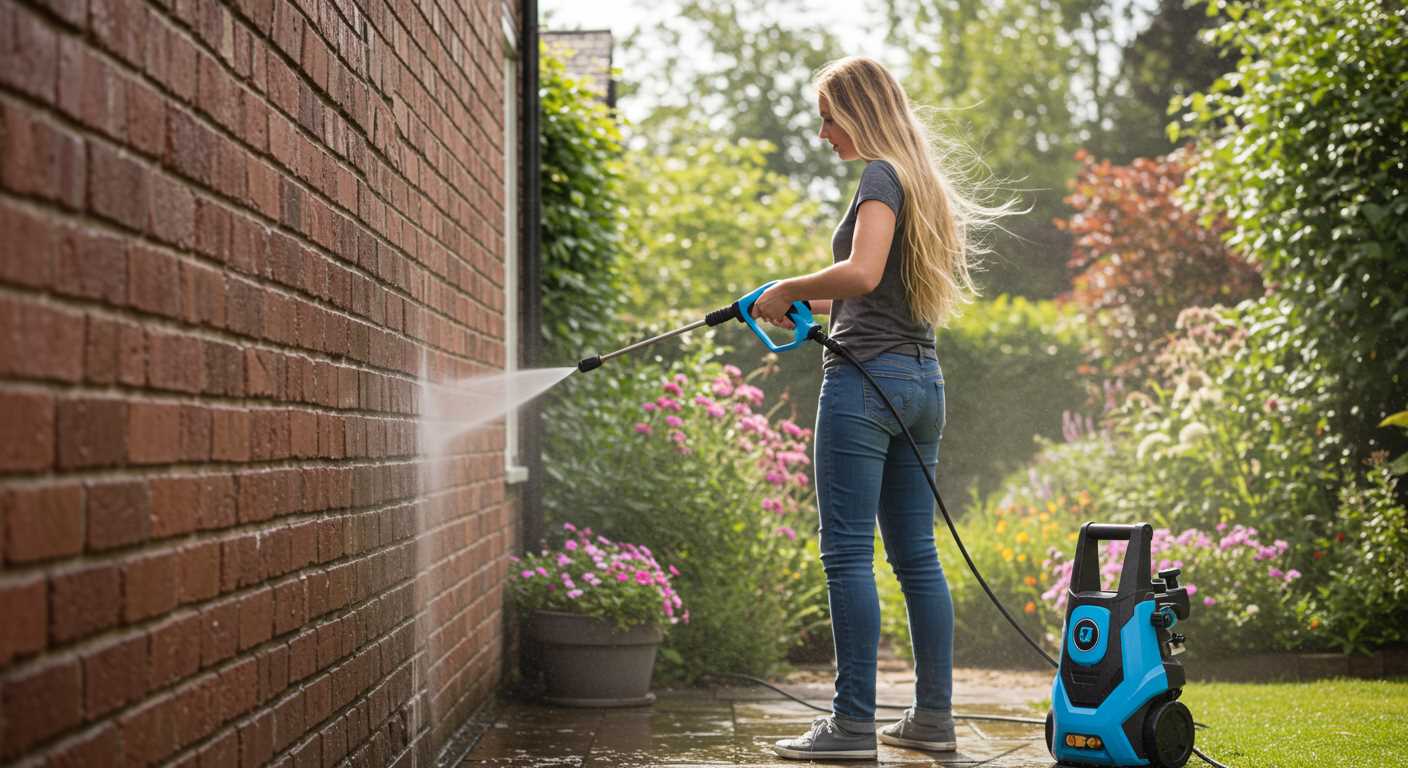
For maximum impact, utilise high-pressure devices for cleaning driveways; they effectively remove oil stains, dirt, and grime. Applying a narrow nozzle increases water velocity, ensuring stubborn stains vanish.
Decks and patios benefit from thorough rinsing, as these outdoor spaces accumulate dirt, mould, and mildew. A rotating nozzle enhances coverage, achieving impressive results with minimal effort.
Vehicles require gentle handling; utilising a wide-angle nozzle prevents damage while effectively washing away dirt and grime. Maintaining your car’s appearance is straightforward with a long extension wand, allowing you to reach all areas.
Fences made of wood or vinyl regain their original charm after being treated with a pressure device. Opt for a lower pressure setting to avoid splintering wooden surfaces, ensuring a safe and thorough clean.
Outdoor furnishings, such as chairs and tables, can accumulate dust and spills. Using a spray attachment with soap capability allows for deep cleaning, making these items ready for use in no time.
Roofs, particularly those prone to moss and algae growth, respond well to pressure washing. A gentle approach with appropriate cleaning agents removes harmful growth while protecting roofing materials.
Even large commercial areas like warehouses can benefit; high-pressure cleaning quickly restores surfaces, enhancing safety and aesthetics in busy environments.
Finally, always remember to adhere to safety protocols–wear protective gear and check for fragile or loose items before commencing any cleaning project to avoid accidents.
Cost and Maintenance Considerations for Both Options
Investing in a cleaning machine requires understanding the financial implications and upkeep. For consumers, price points can vary significantly based on features, brand reputation, and intended use.
Initial Costs
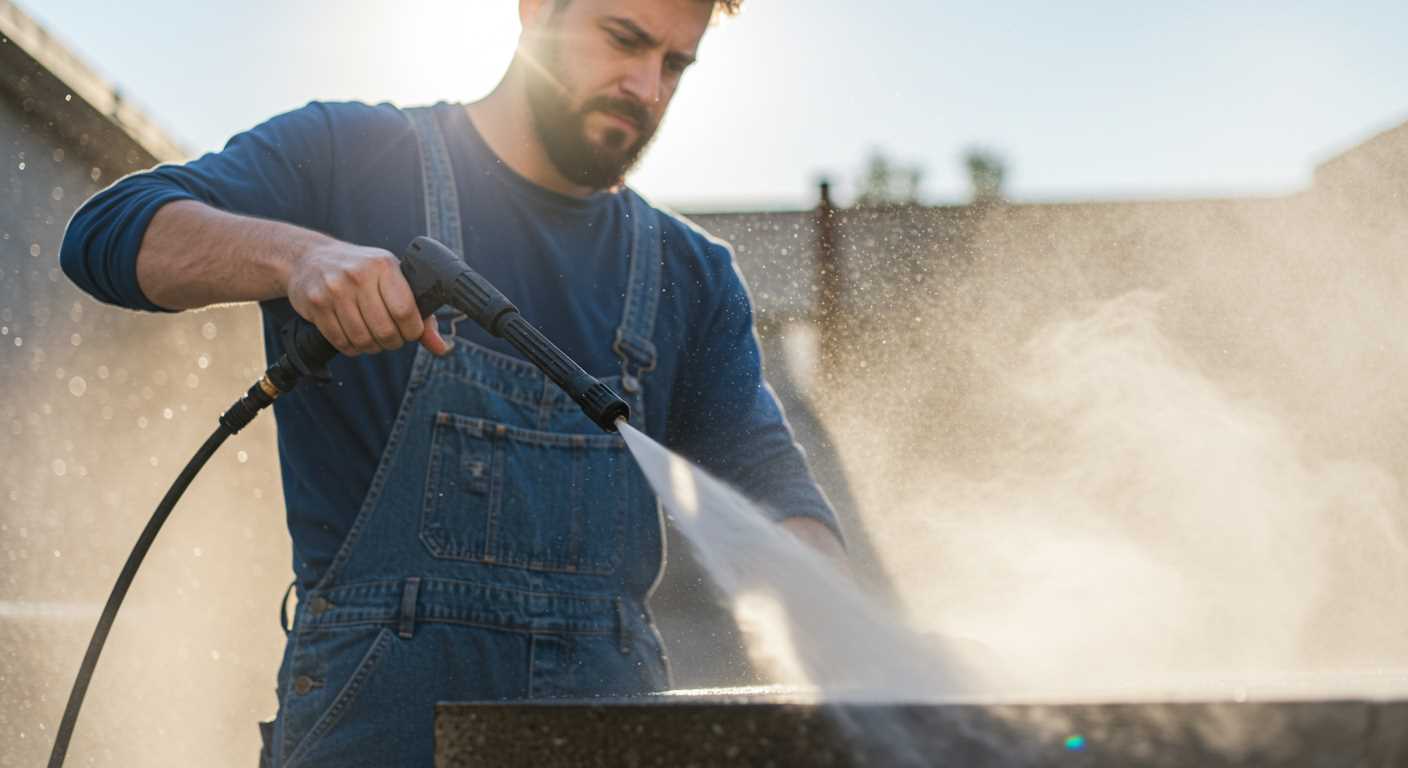
- Standard models typically range from £100 to £300 for electric units, while high-performance variants may exceed £500.
- For gas machines, expect a starting cost around £300, with advanced units costing over £1,000.
Operating Expenses
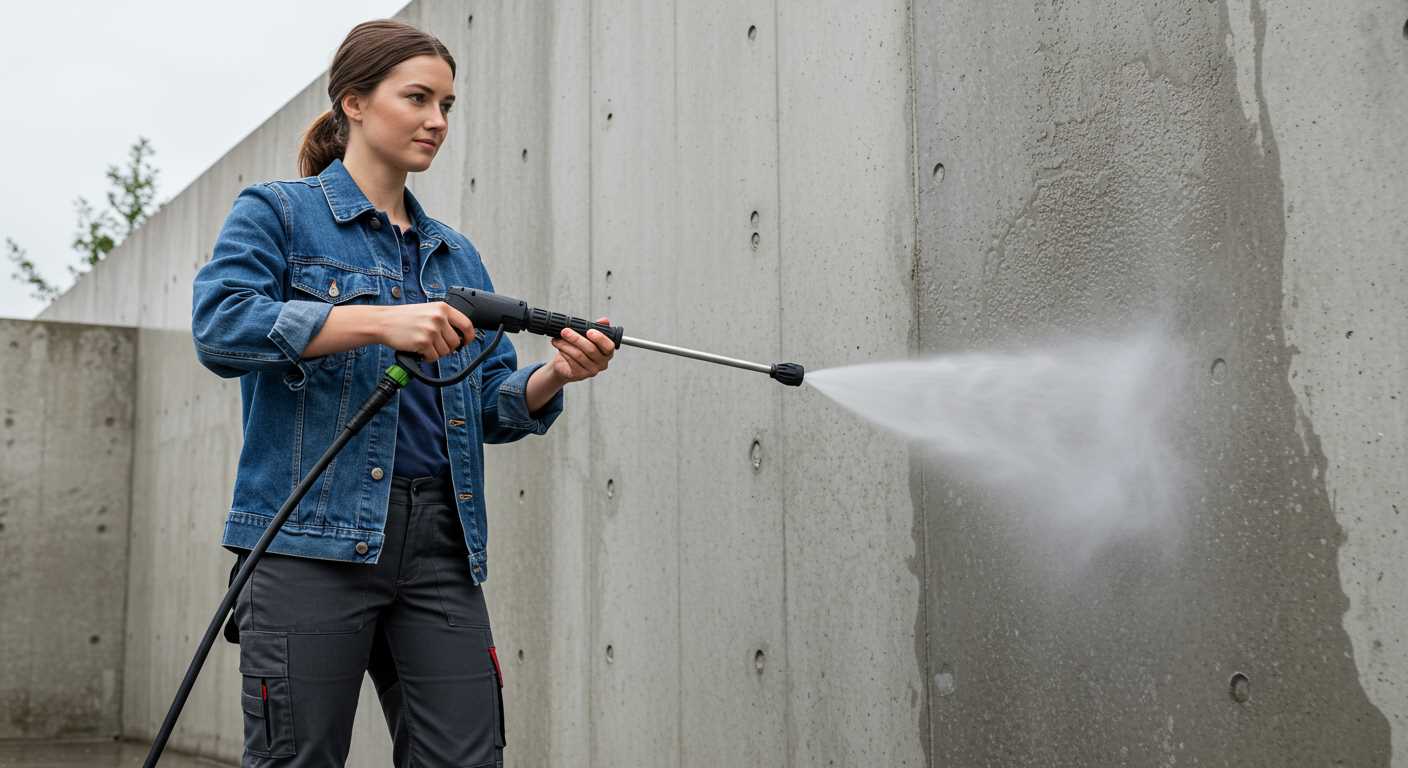
- Electric equipment generally incurs lower ongoing costs. Electricity fees and occasional maintenance are the main concerns.
- Gas options demand more attention: fuel, oil changes, and filter replacements contribute to long-term expenses.
Maintenance habits influence durability and functionality. Regular checks on hoses, nozzles, and filters extend life and ensure optimal performance.
Maintenance Tips
- Store machines indoors to prevent weather-related damage. Extreme temperatures can affect performance.
- Flush water and clean filters after each use to avoid clogging and reduce wear.
- Inspect equipment regularly for signs of wear or damage, ensuring prompt repairs.
Understanding these financial aspects aids in selecting the right cleaning device while ensuring you remain within budget without sacrificing quality or efficiency.




